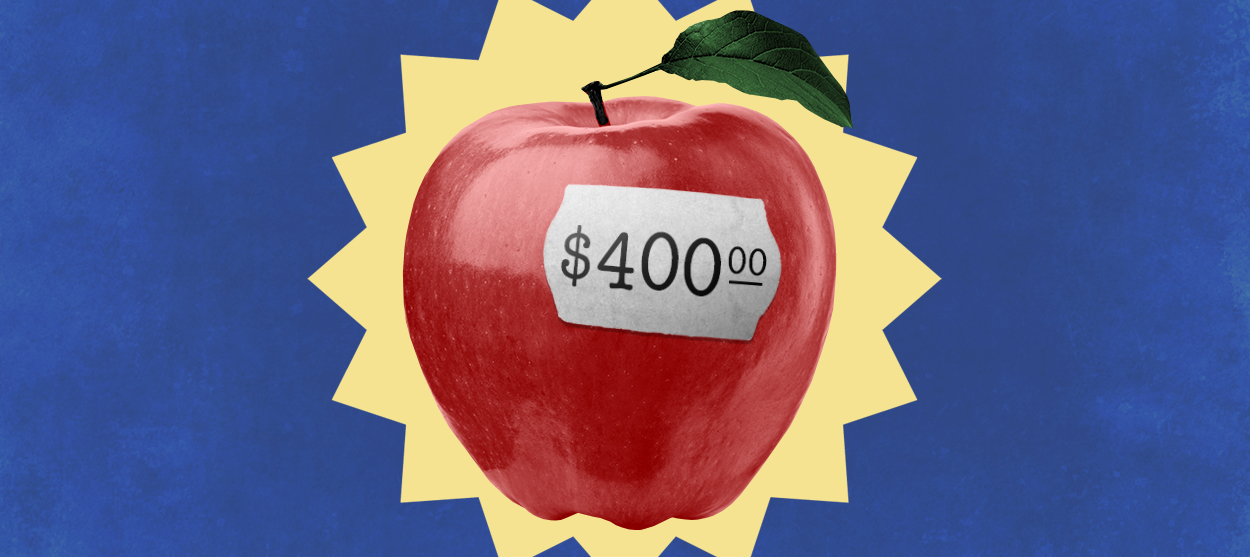Democrats' dangerous inflation assumption
Liberal policymakers assume today's economic trends will never change. Big mistake.


A free daily email with the biggest news stories of the day – and the best features from TheWeek.com
You are now subscribed
Your newsletter sign-up was successful
At a CNN town hall on Tuesday, President Joe Biden dismissed progressive Democratic plans to cancel $50,000 in student college debt — at a cost of some $1 trillion — although he indicated support for $10,000 in loan forgiveness. Biden said he would rather spend some of the difference on early childhood education than forgiving "the debt, billions of dollars of debt, for people who have gone to Harvard and Yale and Penn."
Many on the left are unhappy with Biden's decision. "Nowhere does it say we must trade-off early childhood education for student loan forgiveness," said Rep. Alexandria Ocasio-Cortez (D-N.Y.). "We can have both." AOC's response reflects a new consensus among many Democratic politicians and pundits — not to mention lefty econ Twitter — that Washington doesn't really have to worry much about what things cost. With interest rates and inflation low, Washington has plenty of room to spend, spend, spend. Indeed, Biden also spouts that view when talking about his $1.9 trillion COVID-19 relief plan. "Now is the time we should be spending," he also said at the town hall. "Now is the time to go big."
Again, the "time" Biden is talking about doesn't just refer to the current economic need for more government help (which, as I have written, is not worth nearly $2 trillion). He also almost certainly means that low interest rates and low inflation have created such a benign fiscal situation that America almost really can't afford not to spend big, whether it's on checks to households, aid to cities and states, or infrastructure investment. That, of course, despite record-high budget deficits and national debt.
The Week
Escape your echo chamber. Get the facts behind the news, plus analysis from multiple perspectives.

Sign up for The Week's Free Newsletters
From our morning news briefing to a weekly Good News Newsletter, get the best of The Week delivered directly to your inbox.
From our morning news briefing to a weekly Good News Newsletter, get the best of The Week delivered directly to your inbox.
But what if that benign fiscal situation turns hostile? What if today's placid macroeconomic reality becomes far more volatile and unpredictable? It's not a crazy notion. Policymakers shouldn't assume the good times will never end when they're making taxing and spending decisions. They should avoid huge fiscal wagers that the future will be much the same as the recent past.
One plausible scenario for a big change in America's economic climate — as well as those in other rich economies — is laid out in the 2020 book The Great Demographic Reversal: Aging Societies, Waning Inequality, and an Inflation Revival. Economists Charles Goodhart and Manoj Pradhan make the case that the current macroeconomic situation of persistently low interest rates and low inflation was created by a particular set of historical economic circumstances. Demographics and globalization are key here. The late 20th century saw a flood of workers into labor markets across the world thanks to the baby boomers, as well as the addition of workers from China and Eastern Europe once the Soviet Union dissolved. This labor-supply shock, according to Goodhart and Pradhan, had the tendency to push down inflation — particularly as seen in wage growth — and interest rates. And thus create a world where it's been easy for government and business to borrow.
But now those demographic and globalization shocks are reversing. Working-age populations are peaking or even shrinking around the world. And rising worker wages in China means sending jobs there isn't the bargain for Western companies that it used to be. As a result, Goodhart and Pradhan conclude, bargaining power will shift back to domestic workers and away from employers, pushing up wage inflation. And at the same time the number of old people, who consume rather than produce, will continue to increase. That means more demand for goods and services — and, again, more inflation. "The great demographic reversal and the retreat from globalization will bring back stronger inflationary pressures — this is our highest conviction view," Goodhart and Pradhan wrote in a 2020 essay.
So a world of higher inflation, higher interest rates, and greater fiscal challenges for Washington — a world few policymakers seem to be considering or even imagining as possible. Yet the pandemic and the tsunami of money being spent to fight it should encourage Washington to think harder about just such a possibility.
A free daily email with the biggest news stories of the day – and the best features from TheWeek.com
James Pethokoukis is the DeWitt Wallace Fellow at the American Enterprise Institute where he runs the AEIdeas blog. He has also written for The New York Times, National Review, Commentary, The Weekly Standard, and other places.
